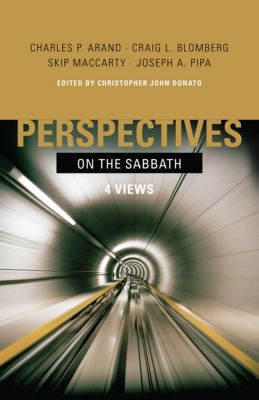
When you’re the pastor, it takes a lot of work to embrace, let alone plan for, the reality of Sabbath. So, how can a pastor Sabbath rightly?
By Mason King
The idea of Sabbath is enticing. A day of no work, no deadlines, and a fill-your-cup-to-the-brim invitation to rest in the Lord. Slow conversations over home-cooked meals, seeds of gratitude, and the gift of presence. The Sabbath reminds us of our creaturely limits and our interdependence upon each other as we all depend upon our Creator.
However, when you’re tasked with leading the worship gathering, preaching the Sunday sermon, or overseeing ministry instead of receiving it, it takes a lot of work to embrace, let alone plan for, the reality of Sabbath rest. There are plenty of false sabbaths available to those driven by duty. And their half-promises can leave us wondering if a call to ministry is a sacrifice of Sabbath rest for the sake of others.
So then, how can the pastor Sabbath rightly?
1. Resist the lie of busyness
Pastoral ministry can easily become a trap of productivity. Emails, texts, projects, and sermons give opportunity for immediate feedback, whereas pastoral visits, counseling sessions, and quiet study challenge our patience and sense of usefulness. Our culture values speed over depth, and ordination isn’t a vaccination against the lies of busyness.
“Our culture values speed over depth, and ordination isn't a vaccination against the lies of busyness.” — @masonking Click To TweetIf we embrace the lie of busyness as usefulness, or as one teacher suggests, busyness as fullness, then we functionally value speed over depth. Our work weeks will consist of constant connectivity and striving to produce, because we all want to hear, “Well done” and fear letting down the congregation we are responsible to. The shadow side of our pastoral responsibility is the tendency to think there is always more time to care for ourselves later, as if we need less sleep, health, or connection than others because we work for the Lord.
The lie of busyness is that daily rest is unproductive and, therefore, irresponsible. And when daily rest is a lost commodity, we place the entire burden of our need for stability onto the Sabbath. We deny ourselves daily peace of mind and stack expectations of alone time, self-care, and rest onto the Sabbath. We miss God’s design for the day because we embrace a lie the other six days of the week.
Where are you denying yourself daily spaces of solitude, time for restorative activities, or meaningful connection?
2. Embrace God’s good design
When we recognize and resist the lie of busyness, we can turn and embrace God’s good design for Sabbath rest. If the scarcity mentality of busyness drives us, we will treat the gift of the Sabbath as a space for time alone doing what we want instead of God’s design for it as time together, reminding each other of what He’s done.
I’ve written elsewhere that the Sabbath is not self-care but self-denial. This is an essential reminder for those who simultaneously daydream about and deny themselves alone time. The Sabbath is a day for the people of God to cease striving and turn their whole selves toward God Himself. We embrace our finitude, rejoice and mourn with friends, and rehearse God’s truth among God’s people.
The Sabbath is a gift made for people; therefore, the invitation is for the people of God to rest and remember together.
“The Sabbath is a gift made for people; therefore, the invitation is for the people of God to rest and remember together.” — @masonking Click To TweetPastor, where have you treated the idea of the Sabbath as a means to withdraw from God’s people instead of seeking rest among them? How can you pursue meaningful connection within your community that doesn’t conflict with your vocational duties?
3. Plan for shared delight
When we believe the lie of busyness, we deny our limits as creatures. We are not machines that produce without ceasing. When we embrace God’s good design, we recognize the gift of Sabbath rest and the importance of dependence upon God and interdependence upon each other in the family of God. We must plan for shared delight, or we will drift into isolation.
Many lack the friendships we need because we’re believing the lies of busyness. When faced with time off work, we escape into comfort or avoid meaningful connections outside of our homes. These are false promises of rest.
Pastor, you need friends who know and love you for who you are, not what you do. You need to belong to a group within the people of God whom you can receive from, even as they receive from you. You need a space to exhale around the table, and it takes intentionality. We must plan for delight, or we’ll settle for less than the gift of true rest.
“We must plan for shared delight, or we will drift into isolation.” — @masonking Click To TweetOver the last few years, we’ve left dinners with friends and thought, “I wish we did that more often. No one was in a hurry, and that was life-giving.” So, we’ve begun to plan for this kind of delight. We’re chasing Sabbath by cultivating meaningful connections with God’s people weekly.
Pastor, where have you avoided connection to chase alone time? Who sits at the table of your life, and who do you need to invite to have a seat? How could you structure your responsibilities to provide rhythms of rest, connection, and delight?
The Sabbath is a gift to remember we didn’t make ourselves, and we’re not designed to live this life alone. God has made us for Him and given us each other. This is true for you too, pastor.
For permission to republish this article, contact Marissa Postell Sullivan.

Mason King
Mason serves as a pastor at The Village Church in Flower Mound, Texas. He also serves as the executive director of The Village Church Institute and Groups. He is currently completing Ph.D. in church history and holds a D.Min. in executive leadership. A native Texan, Mason and his wife Carly have three kids and a chocolate lab.












